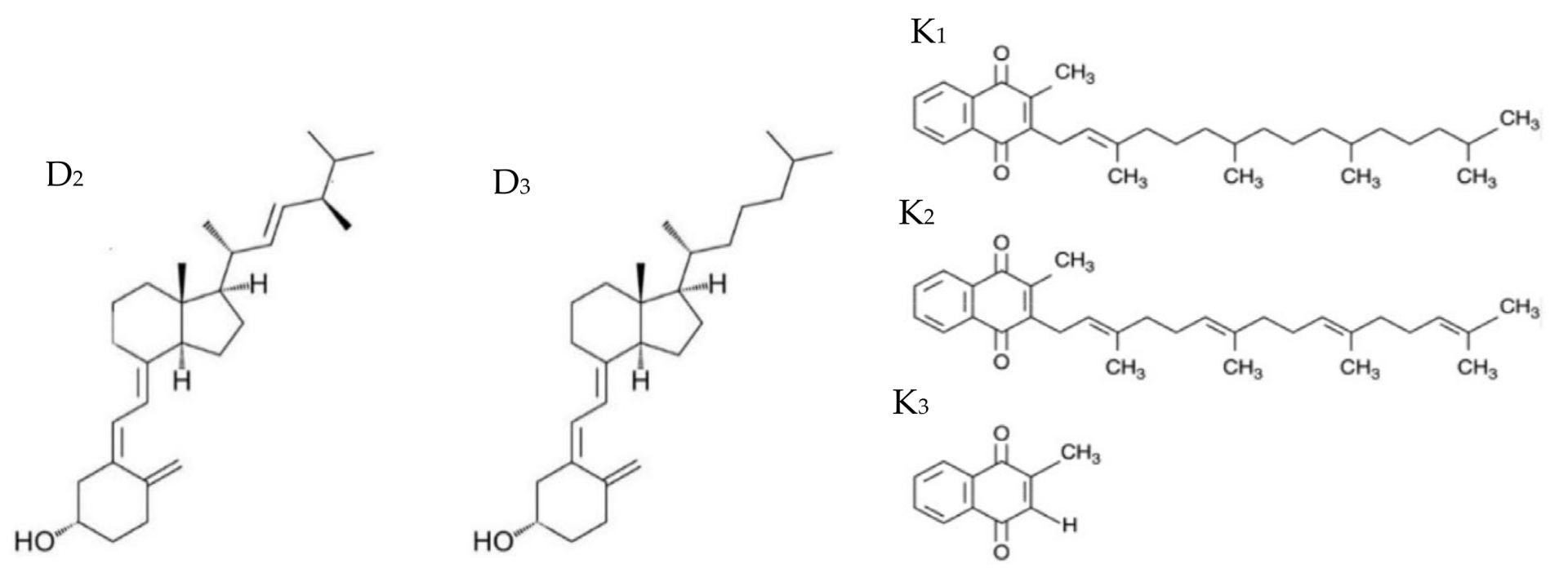Vitamin K2, known as menaquinone, plays an important role in the human body, despite typically receiving less attention than other vitamins.
This fat-soluble vitamin has a number of unique functions, including the regulation of calcium in the body and the support of bone and cardiovascular health.
A deficiency in vitamin K2 can lead to various problems, including weakened bones and an increased risk of cardiovascular diseases.

Cardiovascular system. This vitamin is especially important for cardiovascular health, as it helps to prevent calcium deposits that can lead to serious illnesses.
It helps direct calcium to the bones and teeth and prevents its deposition in the arteries, which can reduce the risk of cardiovascular diseases.
Osteoporosis and dental health. Additionally, vitamin K2 may help reduce the risk of osteoporosis and maintain dental health. It can aid in the mineralization of tooth enamel and support gum health.
Vitamin K2 may influence insulin levels. Studies show that vitamin K2 may improve insulin sensitivity and regulate blood sugar levels.
Vitamin K2 may support skin health. K2 aids in the healing of tissues and contributes to improved skin condition.
It may be involved in the synthesis of proteins such as osteocalcin and matrix Gla-protein (MGP), which can help maintain skin elasticity and reduce wrinkles.
Vitamin K2 intake may lower cancer risk. Research links high levels of K2 with a lower risk of certain types of cancer, such as prostate, liver, and lung cancer.
It may help prevent metastasis and stimulate apoptosis (programmed death of cancer cells).
Sources of vitamin K2
Vitamin K2 can be obtained from fermented foods, such as natto or, to a much lesser extent, in tempeh and kimchi.
The K2 content in fermented products varies depending on the type of fermentation and the microorganisms used.
Tempeh is produced using specific fungi (such as Rhizopus oligosporus), and while this process can result in a small amount of K2, studies show that the K2 level in tempeh is significantly lower compared to natto.
For example, natto contains up to 800–1000 mcg of K2 per 100 g, whereas in tempeh, the level of K2 may be significantly lower or even absent.
Other sources of vitamin K2 include foods like eggs, meat, hard and semi-hard cheeses (Gouda, Emmental, Cheddar), as well as fermented dairy products, including yogurt and kefir.
The longer the cheese ages, the more K2 it contains.
Possible forms and their learnability
Nutrient forms are listed from best to worst:
Options on iHerb:
Vitamin K2 deficiency and its consequences
One of the main effects of a deficiency of this vitamin is a disruption in the bone formation process.
With a lack of it, bones become more brittle and susceptible to various diseases, such as osteoporosis.
Another serious consequence of vitamin K2 deficiency is impaired vascular function. A deficiency increases the risk of cardiovascular diseases, such as atherosclerosis and strokes.
Excess vitamin K2: possible issues
Unlike some other fat-soluble vitamins (such as vitamin A), K2 is not considered toxic even at high doses.
Studies show that K2 is well-tolerated and rarely causes side effects.
Interesting facts about vitamin K2
There are several forms of vitamin K2. The most well-known are MK-4 and MK-7, which differ in their sources and absorption methods. MK-4 is found in meat products, while MK-7 is in fermented products, such as natto.
Microorganisms can synthesize vitamin K2. Some bacteria in our intestines are capable of producing this vitamin.
However, it is usually produced in limited quantities and not in the forms that the body uses most effectively.
Additionally, production of the vitamin occurs mainly in the large intestine, where nutrient absorption does not take place as actively.
Vitamin K2 can act as an antioxidant. It can protect cells from oxidative stress, which is important for overall health and longevity.
Vitamin K2 and vitamin D3 work synergistically. Together, these two vitamins can improve bone and cardiovascular health by ensuring better calcium absorption.


























